Adieu to the Lion
 07.6.2013
07.6.2013
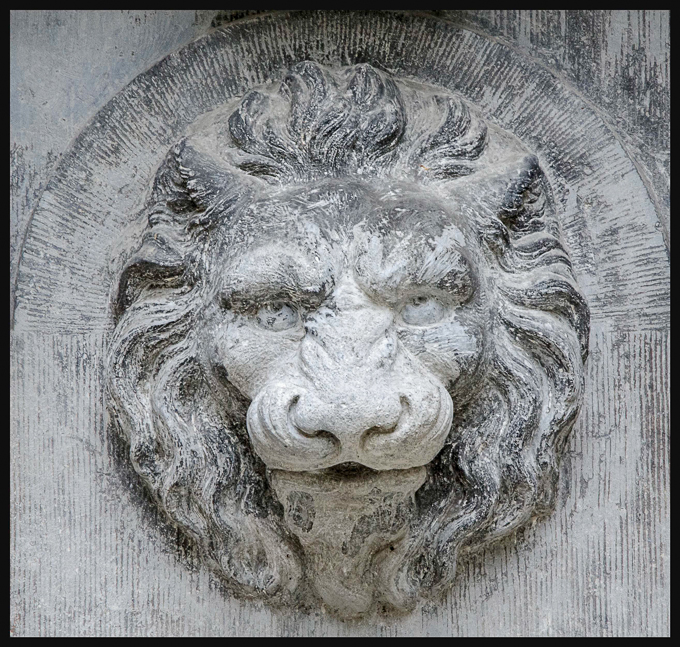
He is old and tired. His right leg drags behind him. His bony skeleton shows pink through the white fur. It is hard for him to jump on the bed or onto a chair beside us.
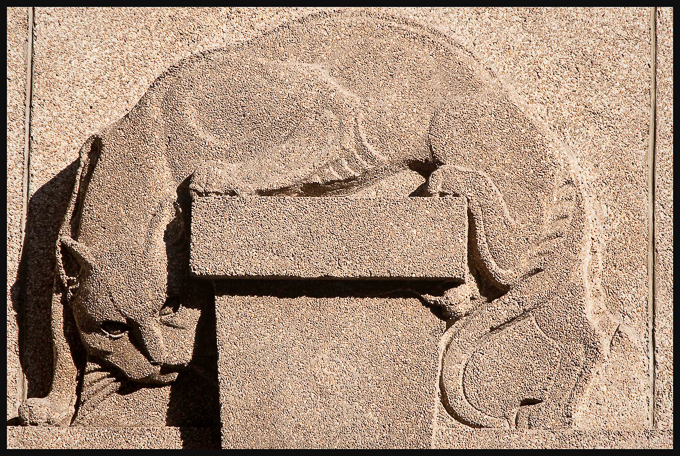
In May and June, I traveled for a month in the USA, and coming home, wept on seeing our little lion so weak, so sick. You can see it in his eyes, his fur, his slow movement. He has a tumor, inoperable because of his age, and we grind six medications a day into his food. He is 19.
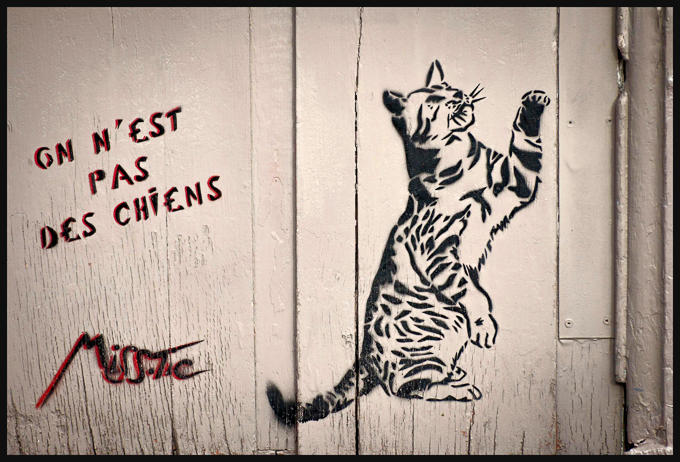 Street art by Miss-Tic (c) 2013
Street art by Miss-Tic (c) 2013
Richard and I lie on the living room floor, and sing to him. We bring his small statue of Bastet out of her basket, and she blesses him. Marley’s voice is a peep now instead of a roar.
Macho cat, King of the Block, calm, afraid of nothing, no one, resourceful (he adopted us after interviewing everyone on the block), confident, outspoken. He was Richard’s muse and mine, he gave us equal time. He was the familiar of our writing group for six or seven years.
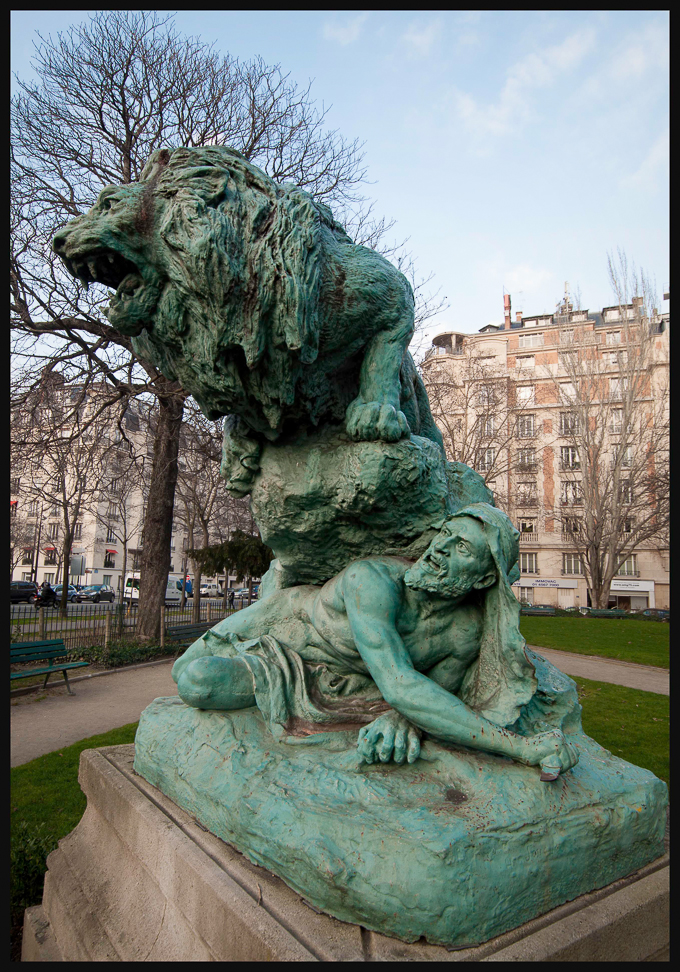
He was seriously pissed at us twice, and both involved moves. Once when we moved from Venice, California a few miles to Playa del Rey. There were so many feral cats in the neighborhood, and he came home beaten up and bitten (and turned into a Cone-head for a few months) that we had to keep him indoors after his years of roaming Venice. (How would you feel? Exactly.) But he did have a sunny inner courtyard all his own in the center of our Spanish-style house.
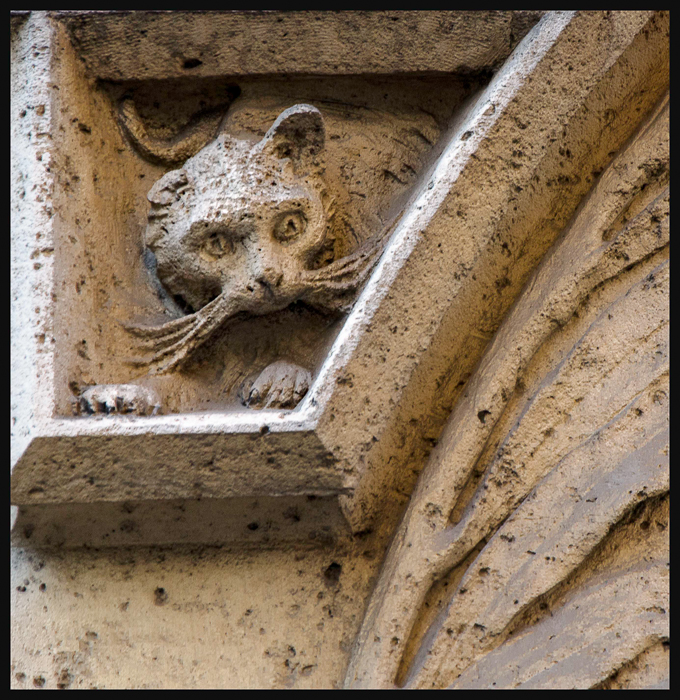
And then on moving to Paris, because he was ONE pound over the weight limit and so could not ride with us upfront, he was banished into cargo limbo for the plane trip. He hissed at us like a cobra when we picked him up in the fret section of Charles de Gaulle airport. Fret? We did. And later learned it meant freight. He wouldn’t look at us the whole taxi ride into town.
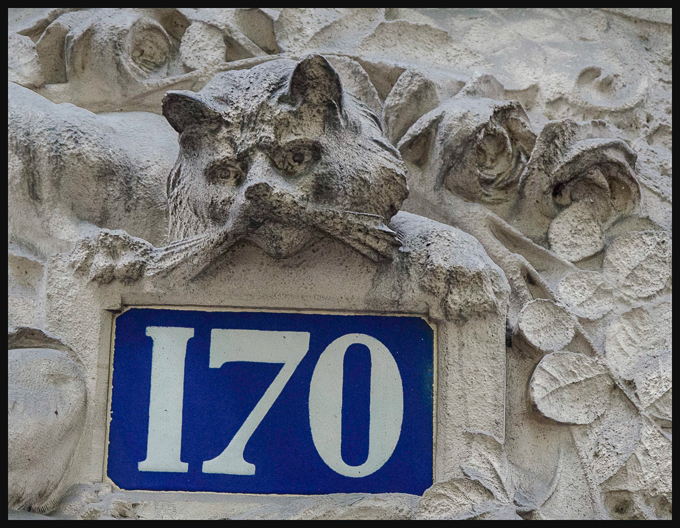
And then he became a Parisian chat. He learned to modulate his voice, not to be yelling all the time like an American. To trim down. (A friend, Frederic Tuten, tells us that when he lived in Paris, someone told him the only serious crime here is being fat).
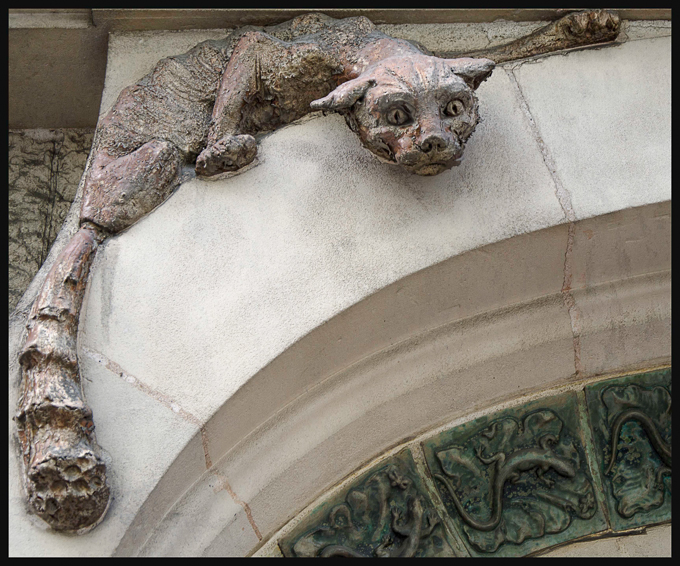
Marley learned to be a flâneur. He disguised himself as a fur scarf, and strolled around Paris on Richard’s shoulders, as cool and leisurely as any Parisian cat.
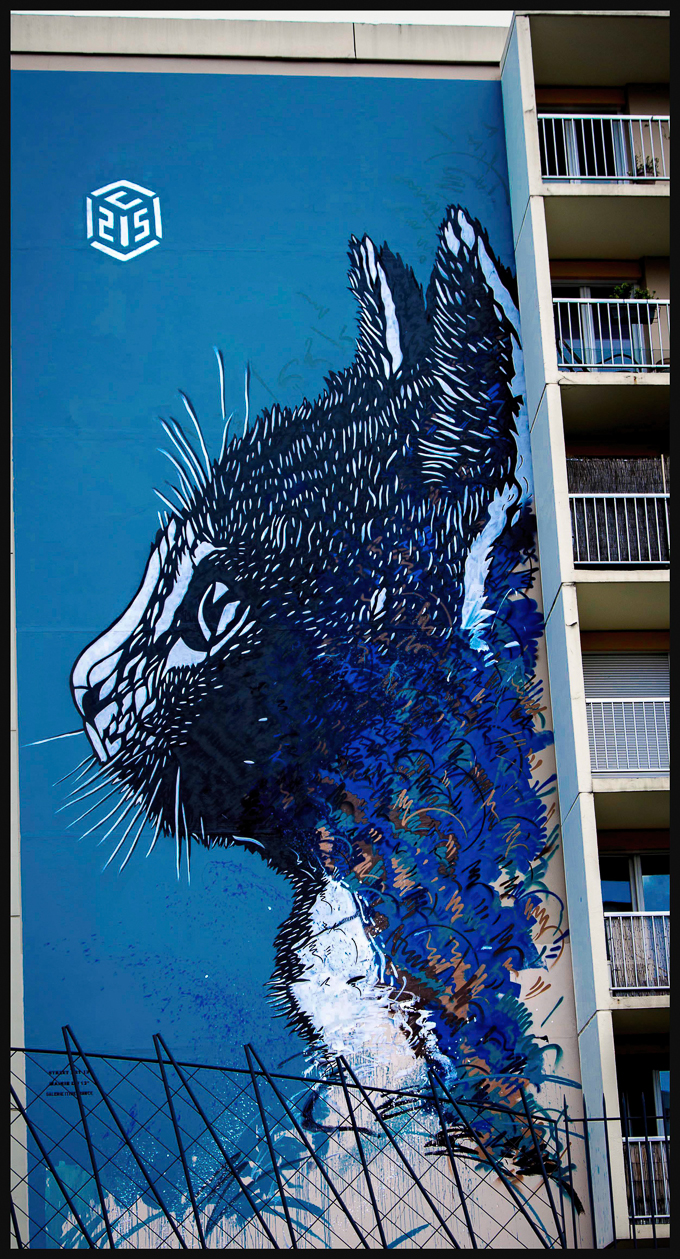 Street art (c) 2013 by C215
Street art (c) 2013 by C215
In all essential ways, though, he did not change on moving to Paris. He still loved being as close to us as he could get. Either one of us would do, but both of us? Purr-fect.
He was still psychic. When friends Mort and Jeannette were last here, visiting from their houseboat, he sensed Jeannette’s grief at losing their sailor chat, Miranda. In a room full of a dozen people, he stayed close to her, wove around her ankles, comforting her, and who knows, maybe even speaking to Miranda’s spirit.
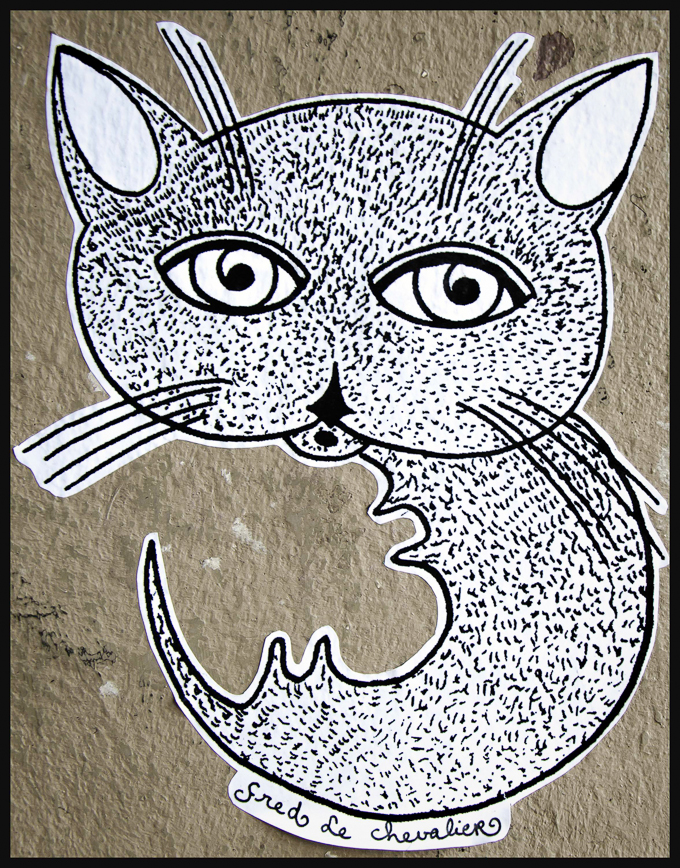 Street art (c) 2013 by Fred Le Chevalier
Street art (c) 2013 by Fred Le Chevalier
He approved of physical vigor. One morning just a few weeks ago while waiting for my tea water to simmer, I was inventing Hindu ballet moves. Marley nudged my calf and purred. This is more like it, he said. All that sitting around putting marks on paper. Stretch those limbs! Let’s dance!
Today I found him splayed like a frog on the tile near his litter box. I picked him up and placed him on his throne, a big pillow on the floor near the open window he used to jump out of to sun himself on the fifth-floor ledge.
I called to see how late our vet would be there on a Saturday. Till 3:30. I showered. Tried to reach Richard, who was out photographing a parade.
Marley was having trouble breathing. I kept checking as I dressed. He was panting. I lay beside him, talked to him. Tried to give him water. He couldn’t drink. I ran back to the bedroom to grab my purse. Checked again.
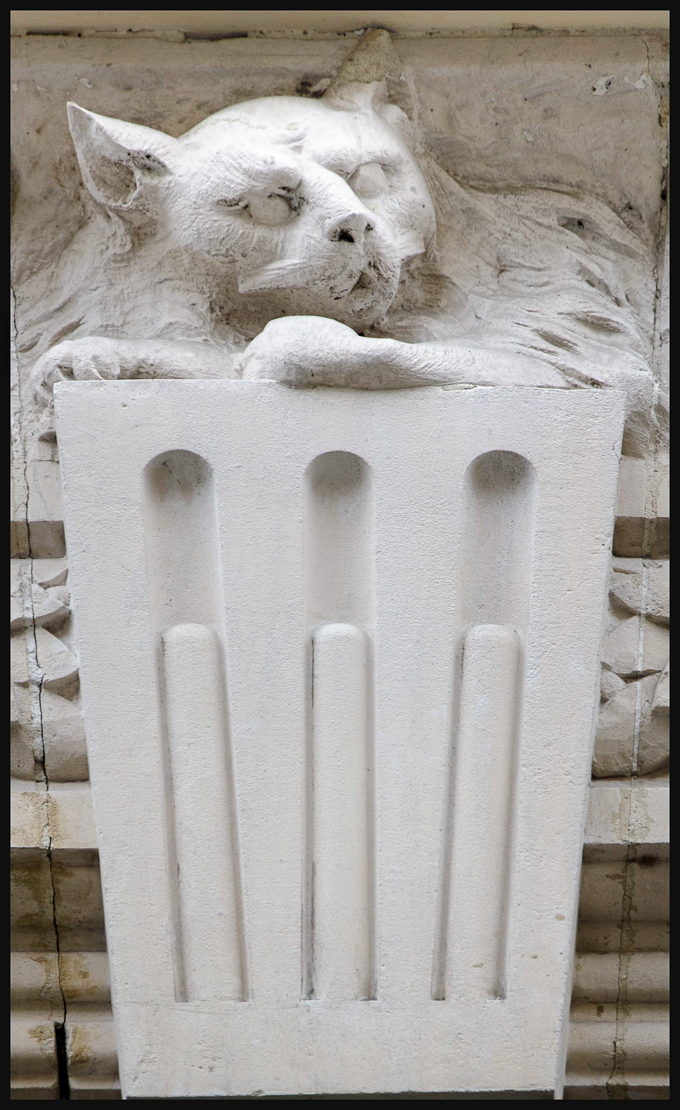
Marley was still.
Deeper than words, silence. And tears.

 Marley,
Marley,  death,
death,  family in
family in  Marley the Cat
Marley the Cat 



















